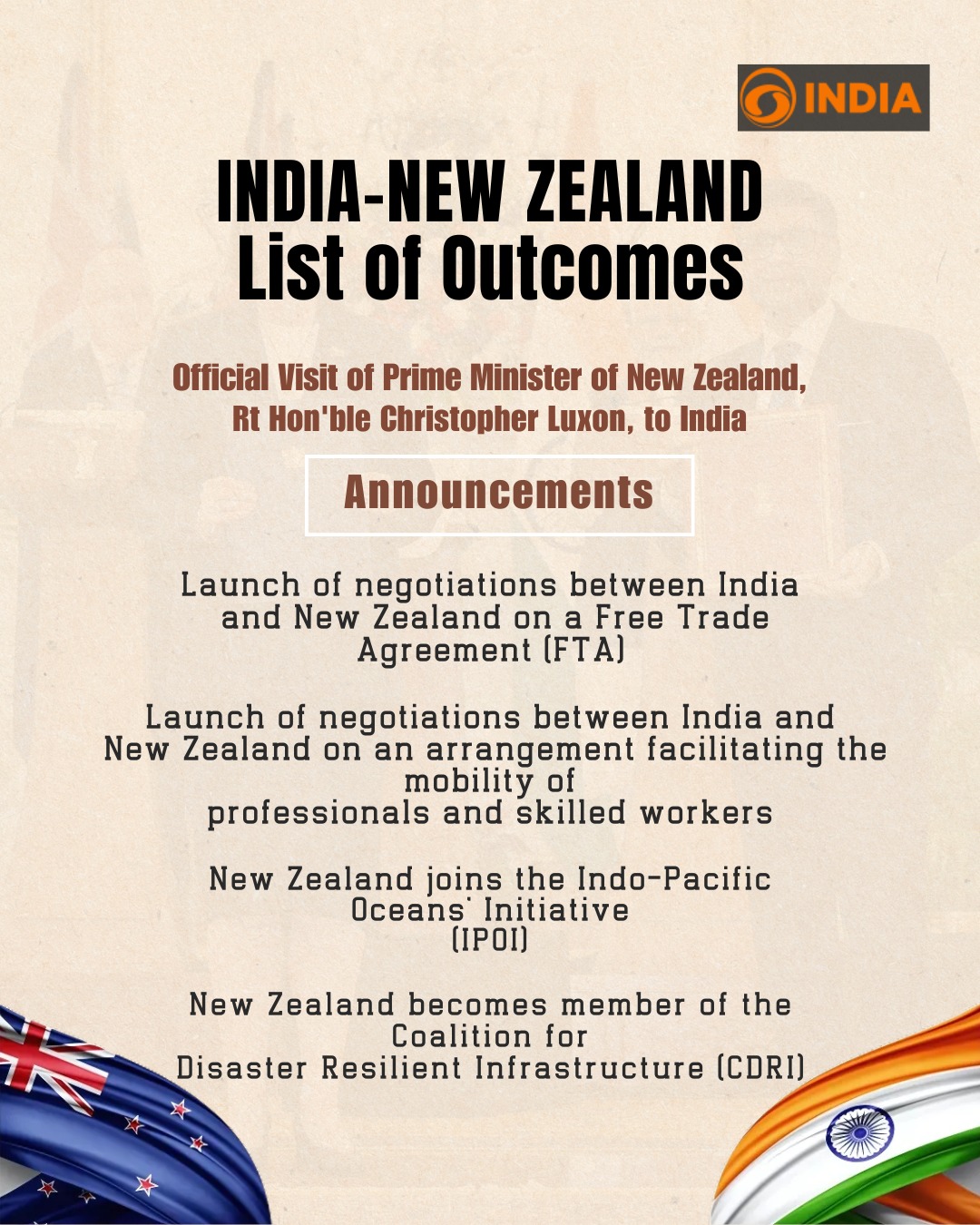Context:
- India and New Zealand have recently signed a historic defence cooperation agreement, marking a significant milestone in their growing bilateral relationship. This agreement aims to bolster defence and security ties, with a particular emphasis on enhancing maritime safety and security in the Indo-Pacific region.
- This development underscores the shared strategic interests of both nations in ensuring regional stability and upholding international security norms.
Key Aspects of the Agreement:
The defence cooperation pact between India and New Zealand covers a range of critical areas that are designed to enhance both countries’ defence capabilities and mutual security interests:
- Regular Bilateral Defence Engagement: Both nations have agreed to establish regular bilateral defence engagements. This will include high-level visits, staff talks, joint military exercises, and enhanced coordination on defence-related matters.
- Cooperation in the Defence Industry Sector: The pact also includes provisions for cooperation in the defence industry sector, which involves joint research and development, production, and procurement. This collaboration will help in leveraging each country’s capabilities to enhance technological and operational readiness.
- Enhancing Maritime Safety and Security: The two nations have pledged to step up their cooperation on maritime safety and security. The Indo-Pacific region, with its vital sea lanes of communication, is crucial for global trade and security. By focusing on enhancing maritime safety, India and New Zealand aim to contribute to regional stability and ensure safe navigation for all maritime stakeholders.

About India and New Zealand relationship:
India and New Zealand have shared warm diplomatic relations since 1952. Their cooperation has been rooted in shared values, including democratic governance and membership in the Commonwealth.
India and New Zealand have several shared aspects, such as:
-
- Membership in the Commonwealth.
- Similar legal systems based on common law.
- Both countries practice democratic governance, with respect for human rights
- Membership in the Commonwealth.
In 2011, New Zealand identified India as a priority country through its “Opening Doors to India” policy and launched the NZ Inc. India Strategy, aimed at strengthening economic, trade, and political ties.
The 2020 strategy paper, "India-NZ 2025 – Investing in the Relationship," aims to build a long-term strategic relationship with India by enhancing economic and trade relations, fostering defense cooperation, and increasing people-to-people exchanges.
In 2023-24, New Zealand exported goods/services worth US$ 0.84 billion to India and imported US$ 0.91 billion. The total trade value between the two countries was US$ 1.75 billion.
India and New Zealand cooperate in defense sector:
- India and New Zealand share friendly defense ties, demonstrated by several high-profile visits of Indian naval vessels, such as INSV Tarini’s port call in New Zealand (Dec 2024-Jan 2025) and the visit of INS Sahyadri and INS Kolkata (Aug-Sept 2023).
- India contributes staff to the Combined Task Force 150, a multinational force led by the Royal New Zealand Navy (RNZN) starting in January 2025.
India’s defence ties with New Zealand are also significant in the context of the Five Eyes intelligence alliance, of which New Zealand is a member. This pact serves as a testament to India’s growing global strategic footprint and its commitment to enhancing defence and security partnerships with like-minded democracies around the world.
Conclusion
- The signing of the India-New Zealand defence cooperation pact is a major development in the diplomatic and strategic relations between the two countries. It reflects their shared vision for a secure, stable, and prosperous Indo-Pacific region.
- By focusing on enhancing maritime safety, fostering defence cooperation, and negotiating a free-trade agreement, the pact aims to strengthen the bilateral ties between the two nations and contribute to regional security.







